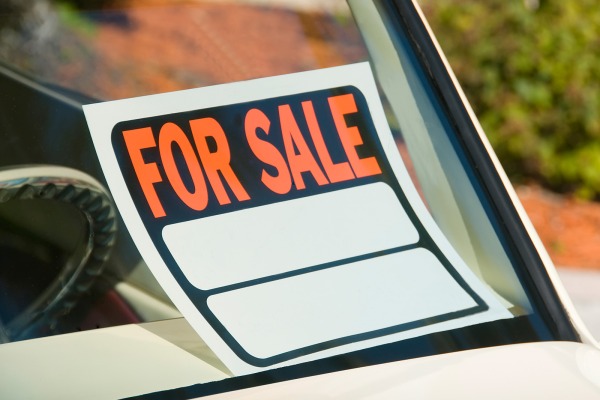
Whether you've just sold your used car or bought a used car, you need to make sure to file all the paperwork and close the deal properly. While the laws governing the sale of motor vehicles vary from state to state, the general outline of the deal is similar. For the specific steps, make sure you check with the department of motor vehicles (DMV) in your state.
As a seller, you will need to make sure you receive the proper payment for your car and limit your liability (in case the new owner crashes the car right after driving away in it). Below, we take a look at the sales transaction from both sides: the seller and the buyer.
As a buyer, you will have to prove you are the new legal owner of the car in order to register it. In most cases, this means you will have to get the title (often called the "pink slip") from the seller or possibly a bill of sale. With title in hand, go to your state's motor vehicle registry, where you may be required to pay sales tax before you receive the new registration, title and (in some states) new license plates.
When You Sell Your Car
Getting Payment
Cold, hard cash is the easiest way to collect payment for a used car. The buyer might request a receipt for the cash. If you provide a bill of sale, this will serve as a receipt. When cars are sold for amounts above about $2,000, a cashier's check is recommended. When cars are being sold remotely, an escrow service can be used to facilitate the transaction. The escrow service essentially verifies that the funds are paid and transfers them from the buyer to the seller.
It's unwise to accept promise of future payment from a buyer even if it is someone you know. If the car is wrecked, the motivation to pay you back is greatly reduced. You are well within your rights to refuse to float loan payments and in most cases, the buyer will understand and quietly back down.
Limiting Your Liability
What if someone drives away in the car you just sold and gets into an accident? Can you be held responsible? There are two ways to deal with this concern. First: Record the odometer reading and sign the car's title over to the buyer. Second: In most states, a release-of-liability form can be downloaded from the registry of motor vehicles website. For links to the different registry sites, see "What Fees Should You Pay?"
Managing Complications
What if the buyer calls the next day and says he doesn't like the car and wants you to take it back? Or what if the buyer claims that you didn't reveal something about the car or that he's discovered a mechanical problem?
Both buyer and seller should keep in mind that most states assume a used car is being sold "as is." That means there are no promises or guarantees after the sale is concluded. If you are a buyer, it's imperative that you thoroughly inspect the car before purchase. Sellers can head off trouble by encouraging buyers to do this.
Car Seller's Checklist
When You Buy a Used Car
If you buy a used car from a dealership, the dealer will handle all the paperwork and register the car for you. In private-party sales, the seller and buyer handle the paperwork themselves. While there are many small steps to closing a used car sale, the big picture is this: You as the buyer need to obtain proof that you legally purchased the car and get a statement of what you paid for it.
Where To Finalize the Transaction
Most people successfully buy a used car at the seller's home or office. However, since you will be handling payment for the car, a bank's lobby makes a nice neutral meeting place. Often, you can also ask bank workers to make photocopies of the documents if necessary.
If There Is a Lien on the Car
In some cases, the car you are buying might have a lien on it. That means the bank or lender is in possession of the title. Banks often handle this kind of used-vehicle sale, so check with the bank to learn exactly how to proceed. Essentially, the seller will need to make sure that the balance of the loan is paid off before the car is transferred to you as the buyer. This might take some time and delay the sale.
One way to deal with this situation is to conclude the sale at the bank that holds the title. The seller can call ahead and ask the bank to have the title ready. Then, once money has changed hands and the bank has been paid the balance of the loan, the seller can sign the title over to you.
Beware of Fraud
Buyers need to be particularly cautious when buying a car sight unseen from an online auction. That process is more complicated and you could be the target of scammers.
Used Car Buyer's Checklist
Wrapping It Up
Private-party buying and selling involves some trust, but it goes most smoothly when you are well acquainted with the laws and common practices governing the process. Take the time to read and follow our checklists and let them guide you safely and quickly through the transaction.